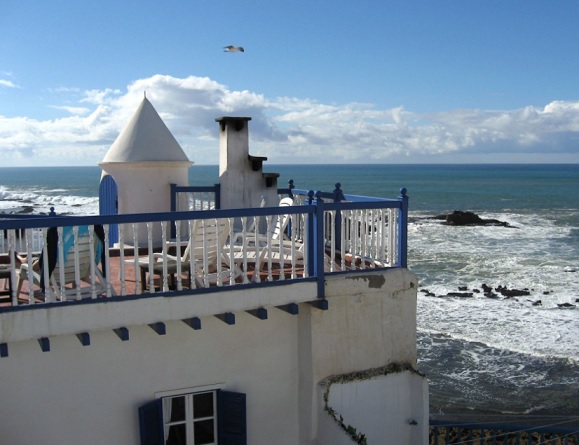Bloomberg
By Souhail Karam
Officials plan taxes on Airbnb users, standards compliance
Online travel bookings, rentals have hit country’s hotels
Moroccan officials have placed Airbnb and Booking.com in their cross-hairs, looking to level the playing field for traditional hotels as a “new reality” forces Africa’s biggest tourism destination to re-evaluate efforts to drum up business.
Vacation rentals offered on online portal Airbnb Inc. will be subject to tax beginning in 2019, bridging a legal void that has hurt the more than 3,800 hotels and hundreds of travel agencies operating in the country, said Mehdi Taleb, head of regulation, development and quality at Morocco’s Tourism, Air Transport and Social Economy Ministry. Tax officials will work with undercover hotel inspectors and interior ministry informants to ensure enforcement.
Authorities will also help local online travel platforms offer attractive packages aimed at giving them greater footing against online global sites like Booking.com.
The changes are part of the North African kingdom’s efforts to confront a “new reality which is distorting visibility for our tourism development strategies,” Taleb said in an interview. With the help of online portals, 60 percent of the 10-million-plus holiday-makers visiting Morocco yearly plan their holiday by themselves — sidestepping the conventional tourism market.
About 20,000 people list properties on Airbnb in Morocco, second on the continent only to South Africa. With tourism receipts topping $7 billion in 2017, the industry is Morocco’s top hard-currency earner and accounts for 10 percent of the economy.
Air Arabia Expects Egypt, Morocco to Boost Growth This Year
Morocco joins a list of governments applying taxes and regulations to online lodging marketplaces like Airbnb. Critics say the unregulated, unlicensed short-term rental market has hurt conventional travel operations and driven up property prices, while depriving governments of revenue.
Jaber al-Hababi, who owns the no-frill Auberge Dardara in the up and coming tourist draw Chefchaouen, welcomed the authorities’ plans as “the logical thing to do,” but sounded a note of skepticism.
“Outwitting the Internet and the new technologies is much easier said than done,” al-Hababi says by telephone.
“The market here is totally imbalanced because of Booking.com, Airbnb and the informal rental sector,” he said. “Many people in Chefchaouen squat with relatives so that they can rent their own homes to tourists. So poverty is the problem.”







